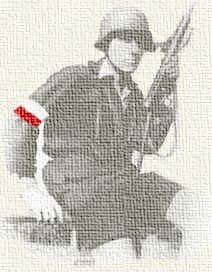 |
Daily Blog - Tiger Software Send any
comments or questions
|
| 8/27/2007 When Is Resistance Really "Resistance"? How can we spot it? How can we trust it? How can we have enough confidence in it, To Sell at it and not to Buy? Technical analysis helps answer this. Much of it is based on psychology. "Resistance" is the point where fear of an impending decline is greater than the greed inherent in the bullish outlook. It is the point where prices are most likely to churn for extended periods of time. It is also the point where prices may suddenly, without apparent reason, reverse and decline. A stock rises to resistance when: It has just fallen at least 15%, say, or more and then rises back up to its old high. It rises back to a level or zone where prices have previuosly been turned back many times. It rises back up to a well-tested price-downtrendline. It rises up to a key falling moving average. We like 10-day, 21-day, 50-day, 30 week, 200-day and 52-week moving averages. Even more, it rises up to a set of nested key moving averages. Many times once a stock gets past its declining 10-day moving average, it will rise to the resistance of its falling 21-day moving average, and if its surpasses that it will test the resisrance of its falling 50-day moving average. In a bigger decline, it recovers 50% of what it had previosly lost. Some people believe that Fibonacci numbers pose resistance to rallies: 1, 2,4, 5, 8, 13, 21,34, 55 (I don't see this.) Easy round numbers are more reliable points of resistance. They are psychological benchmarks. Sellers feel good when they get such prices as 5, 10, 20, 40, 50, 100, 1000... 14,000. Traders may be happy with a quick 10% profit. Be aware of this if you a buy a breakout. Late in a bull market, that is all a stock may achieve on a breakout. A failed breakout will often find resistance on the next rally exactly at the point where the breakout failed. Failed support levels tend to be resistance on the next rally. Prices will often fill a price gap but then meet resistance once the gap has been filled. This is only a start. The skilled technician knows that these principles should be supplemented with measures of momentum, relative strength and volume. Thus, negative readings from our Accumulation Index make resistance much more reliable. If a stock's relative strength and momentum are waning, the resistance is additionally reliable. Come back here a little later and I will have linked some examples to what I have said here.... ----------------------------------------------------------------------------------------------------------------------------------------------- 
 "Resistance" is a noble word. It often means refusal to accept something vile and unethical, as in the case of Europe under the Nazis, I was weaned on stories of their courage. Yugoslav Partisans (partizanski) under Janko Bobetko, Tito. Polish Resistance (Irek) - http://www.polishresistance-ak.org/ Russian Resistance (?????????) Jewish Anti-Nazi Resistance 
French Resistance (Maquis under George Millar and under Charles de Gaulle) "A group of scientists and lawyers working in Paris led by Boris Vilde began publishing a clandestine newspaper calling on the French people to resist the German occupation. The Musée de L'Homme group was infiltrated by a supporter of the Vichy government and as a result virtually all of the men and women involved with producing the newspaper were arrested and executed. It is claimed that one member of the group, Valentin Feldman, shouted at the moment of execution: "Imbeciles, it's for you, too that I die." http://fr.wikipedia.org/wiki/Boris_Vild%C3%A9
|
| . . . .
|

